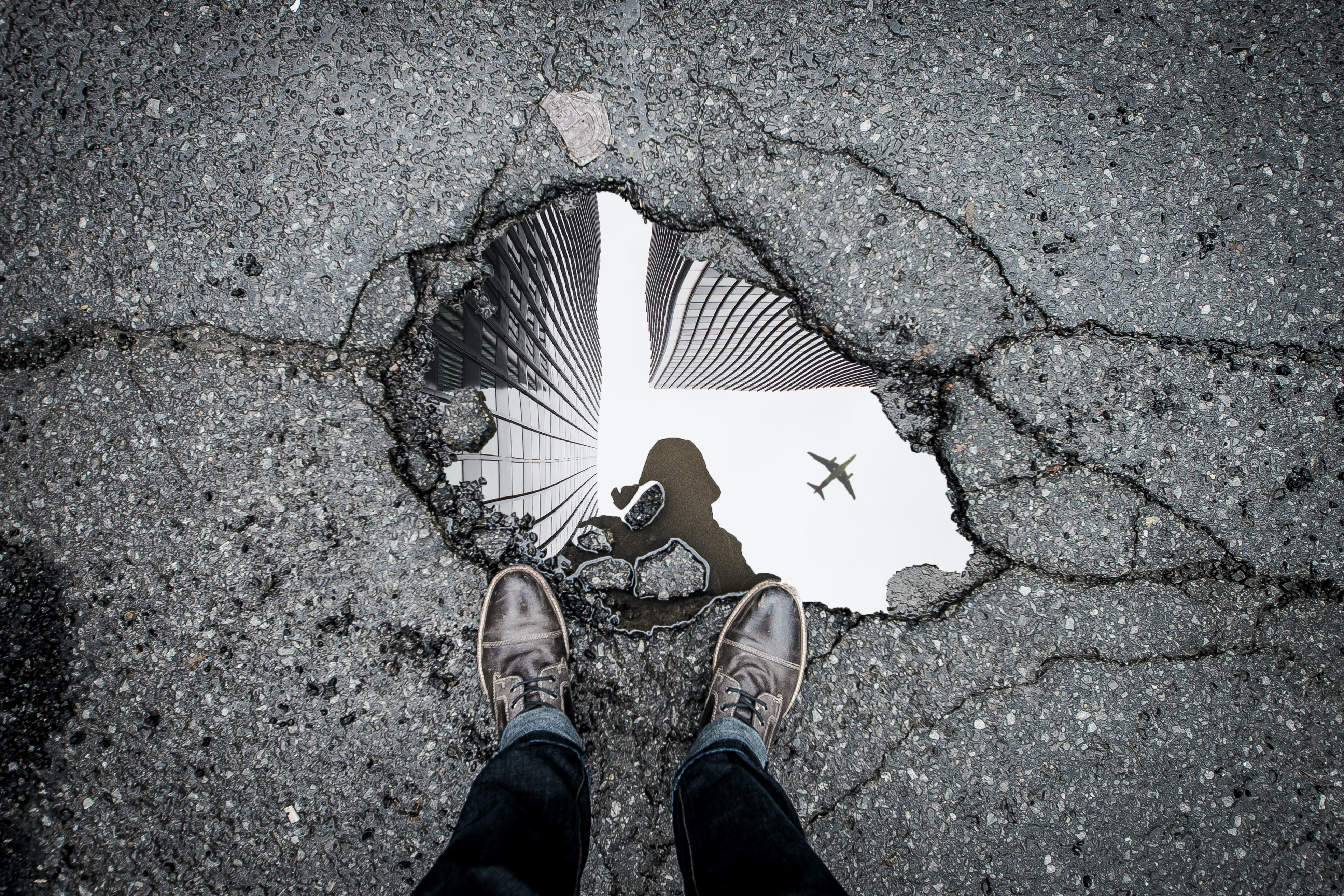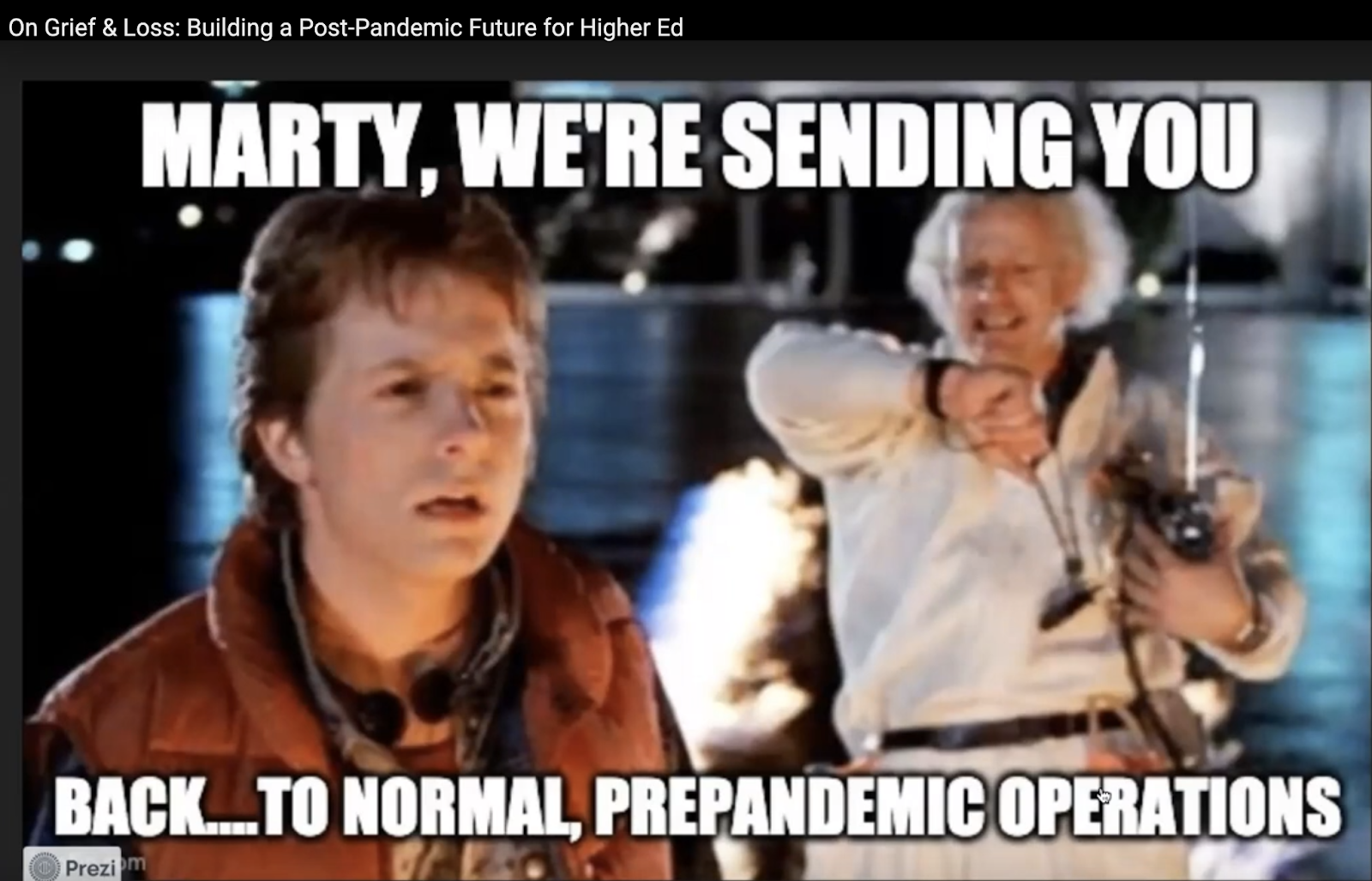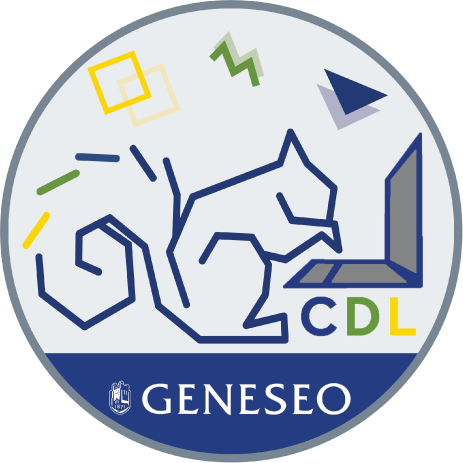Reflection on teaching: Covid-19 and beyond
07 May 2021
 Photo by Marc-Olivier Jodoin on Unsplash
Photo by Marc-Olivier Jodoin on Unsplash
The Center for Digital Learning and the Teaching and Learning Center at SUNY Geneseo are excited to invite faculty and staff to a conversation reflecting on the past year of pandemic online teaching: how it’s felt, what it’s taught us about ourselves and our students, and what it’s shown us about teaching and learning both online and in general.
The Zoom event will be held Tuesday, May 11, 2:30 - 3:30 p.m. Please register to join the conversation.
Our goals for this session are to reconnect with you, review where we’ve all been since this time last year, and think about how we can best resume our collective work as educators in the post-pandemic future.
While preparing for this conversation, the TLC and CDL spent a lot of time thinking and talking through the many facets of pandemic teaching and learning, and how we anticipate moving forward informed by that experience. We all agreed: there is no going back to the “normal” operations of pre-pandemic times. Dave pointed out that our conclusion paralleled the message of Joshua Eyler’s May 2021 presentation for the Plymouth State University OPENCoLab titled “On Grief & Loss: Building a Post-Pandemic Future for Higher Ed without Losing Sight of Our Students and Ourselves”, in which Eyler invoked the movie Back to the Future to imagine how returning to “normal” would feel.

Eyler takes an apt look at how the pandemic has affected higher education — physically, mentally, emotionally, institutionally — and how, despite efforts to the contrary at some institutions, the equity that we’ve discovered and worked to achieve bit by bit during this time cannot be set aside in a frantic move to go back to the way things were.
Below are some moments from Eyler’s recorded talk we’ve found to be particularly relevant to our planned conversation on the 11th. Click on any of the YouTube embeds below to start at the snippet in question, which is also transcribed beneath.
The Marty McFlys of higher ed
So you combine the grief and the loss of this momentous crisis, and you add the traumatic element to this, and what you have . . . is a major crisis, . . . not just of education, but of all the spheres that encase education: faculty, students, staff — the ways that we live our lives that intersect with work, but that go well beyond work. So it is a true crisis. So given that, the message you might expect to hear from universities would be, “We understand. It’s been a really hard time. We’ll be taking that into account as we move forward.” But the message that I actually see many universities sending is this one: that we’re going back to normal. We’re going back to pre-pandemic operations. . . . Look at Marty McFly’s face here. Marty McFly is all of us, hearing the message that we’re going back to normal, pre-pandemic operations. Because the truth is, there is no going back. You cannot undo what has happened. You cannot go back to February or March of 2020, because the end of grief, the end of loss, the end of change is never a return. There’s never a going-back. There’s only a different destination.
Using policy to honor humanity
So one of the silver linings, or one of the bright spots, in this dark time over the last 15 months has been that for the first time, certainly in my career, the spotlight was put on issues of student agency, empathy, flexibility. . . . So universities at the drop of a hat changed their grading policies to pass-fail. . . . I cannot imagine anything else that could have happened to force the conversation about grading and actually make a change like that happen.
Same is true of the discussion about flexible attendance, about flexible deadlines, about student workload, about the kinds of assessments and assignments that we’re giving: the spotlight was cast, at least on the student side, of how do we recognize the humanity of students, and how do we use that in our pedagogy. We need to continue that. I think we’re in an important moment, where the spotlight is fading on that a little bit. We need to continue that work.
The same is true of faculty and staff. We got new policies in our universities that were recognizing, well, okay, remote work and flexible work, in many cases, and other ways of being flexible — you know, at some universities the tenure clock was extended, at some universities student evaluations were suspended for a year or more. So this nod toward, or this extension toward, humanity and empathy was kind of widespread across the board. . . .
Students have seen what’s possible… and won’t forget
Students will remember the changes that we made for them. . . . And they will wonder, why are we going back? Faculty and staff will not forget the changes that were made to make their work conditions be more flexible, and to center them in the process. They won’t forget. And so, we ignore that, and we create a system that [is] less equitable than it was before. Because now people know that it’s possible to change.
We’re positive that after watching and/or reading these thoughts, you’re brimming with responses and connections to your own experiences from this past year, as well as your own hopes for the future. So let’s get together and talk about it!
Invite your colleagues, too. Together, we can continue, in Eyler’s words, to “hold the floor.”
